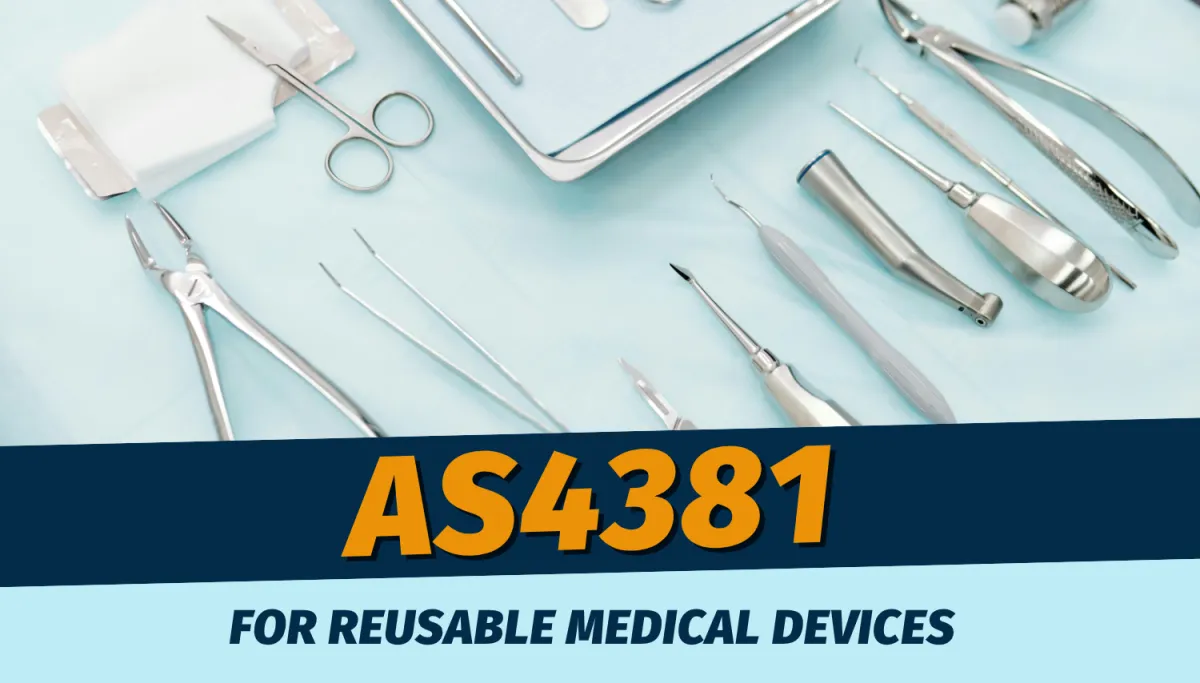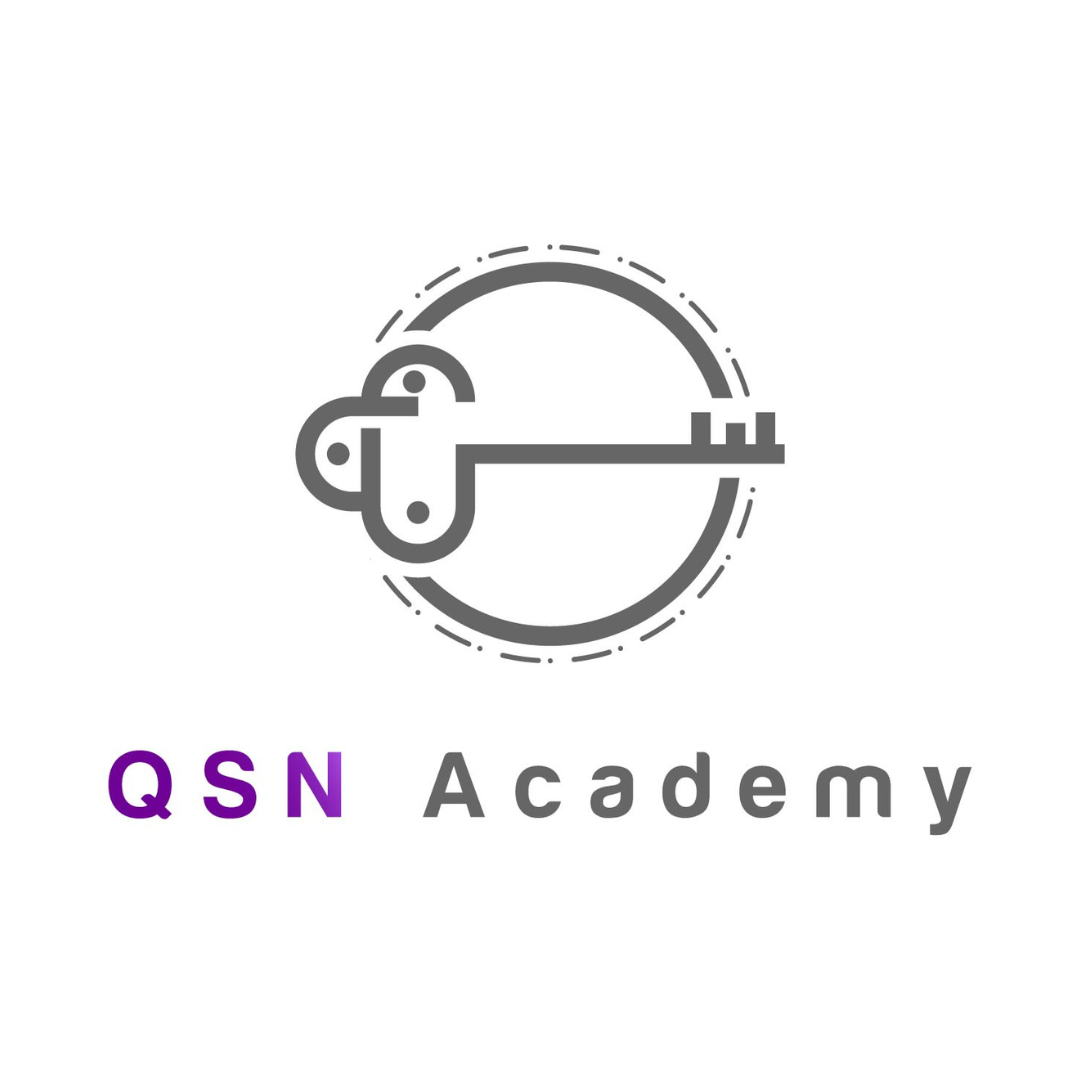
AS4381 for Reusable Medical Devices
The safe handling and management of reusable medical devices are paramount to preventing cross-contamination and ensuring patient safety. One of the key standards supporting this goal in the Australian context is AS 4381:2015, Single-use face masks for use in health care. While AS 4381 is primarily focused on single-use surgical masks, its reference often surfaces within broader infection control guidelines related to reusable medical devices, especially in regulated environments where personal protective equipment (PPE) and sterile processing overlap. This article examines AS 4381 in relation to reusable medical device environments, its intersections with other relevant standards and guidelines, and the implications for quality systems and regulatory compliance.
This detailed overview by QSN Academy explores the scope, application, and scientific context of AS 4381 as part of a robust quality management system supporting Good Manufacturing Practice (GMP), regulatory compliance, and infection prevention in therapeutic goods manufacturing and healthcare-related laboratories.
Overview of AS 4381: Scope and Intent
AS 4381:2015 specifies requirements for single-use face masks intended to limit the transmission of infectious agents between clinical staff and patients. Although the standard does not directly regulate reusable medical devices, it is frequently referenced in clinical and laboratory settings where reusable devices are cleaned, disinfected, and sterilised. The reason is that personnel handling reusable devices are often required to wear certified face masks as part of aseptic procedures and cleanroom practices.
AS 4381 is closely aligned with the European standard EN 14683 and categorises face masks based on their Bacterial Filtration Efficiency (BFE), differential pressure (breathability), resistance to penetration by synthetic blood, and microbial cleanliness. The three levels of protection—Level 1, Level 2, and Level 3—correspond to increasing degrees of exposure risk.
Relevance to Reusable Medical Device Handling
Reusable medical devices are instruments or apparatus that can be cleaned, disinfected, and sterilised for repeated use. These include surgical instruments, endoscopes, diagnostic probes, and laboratory equipment. The safe reprocessing of these devices requires a tightly controlled environment where contamination is rigorously prevented.
While AS 4381 does not dictate how reusable devices should be sterilised or managed, it intersects critically with such procedures by governing the PPE standards for staff involved in device handling. Proper face mask use is essential to:
Prevent contamination of cleaned or sterilised instruments from respiratory droplets.
Protect personnel during cleaning procedures that may aerosolise infectious material.
Maintain controlled environments in sterile processing departments or cleanrooms.
Therefore, compliance with AS 4381 becomes a foundational element of the broader infection control strategy applicable to reusable medical devices.
Associated Standards for Reusable Medical Devices
To understand the broader context, it is essential to consider AS 4381 alongside several other relevant standards that directly govern reusable medical devices:
AS/NZS 4187:2014
This is the primary Australian standard governing the reprocessing of reusable medical devices in health service organisations. It defines the requirements for:
Cleaning, disinfection, and sterilisation of reusable devices.
Facility design, including zoning and airflow.
Equipment validation and monitoring.
Recordkeeping and traceability of sterilised items.
AS/NZS 4187 mandates that all reprocessing activities follow documented procedures within a validated quality management system. The personnel involved must wear PPE—including AS 4381-compliant masks—as part of their infection prevention protocol.
ISO 13485:2016
This international standard specifies requirements for a quality management system where an organisation needs to demonstrate its ability to provide medical devices and related services that consistently meet customer and applicable regulatory requirements. For manufacturers and service providers working with reusable medical devices, ISO 13485 aligns with both TGA and international regulatory frameworks and reinforces the importance of personnel protection during device handling and manufacturing.
ISO 17664:2017
This standard specifies the information that manufacturers must provide for the processing of reusable medical devices. This includes validated instructions for cleaning, disinfection, and sterilisation. While it does not directly address PPE, it underlines the critical importance of handling processes that AS 4381 indirectly supports through mask standards.
Personnel Protection and Infection Control
The role of face masks in sterile processing and reusable medical device workflows is central to occupational health and patient safety. According to AS 4381:
Level 1 masks are suitable for general purpose and low-risk environments.
Level 2 masks are designed for moderate risk, including procedures involving minimal blood or fluid exposure.
Level 3 masks are recommended for high-risk environments where heavy exposure to aerosols or fluids is expected.
Personnel working in device decontamination, inspection, packaging, and sterile storage should wear Level 2 or Level 3 masks depending on the risk assessment. This risk-based approach aligns with the principles of GMP and aligns with PIC/S PE009-17 Chapter 5, which covers personnel hygiene and protection in manufacturing settings.
Implementing AS 4381 Compliance in a GMP Framework
In therapeutic goods manufacturing, where reusable equipment may be handled and repurposed, the integration of AS 4381 into a broader GMP framework enhances operational hygiene and compliance. Key strategies include:
PPE Training and Qualification: Personnel must be trained in proper donning and doffing procedures, and masks must be worn in accordance with risk assessments.
Documentation: Procedures for PPE selection and use should be embedded in Standard Operating Procedures (SOPs), and compliance should be recorded and monitored.
Supplier Qualification: Procurement of AS 4381-compliant face masks must be through qualified suppliers with traceable Certificates of Conformance (CoC).
Environmental Monitoring: Regular air sampling and particulate monitoring can validate that mask use is contributing to controlled contamination levels, especially in cleanroom or laminar flow environments.
Correct Disposal Protocols: Used face masks must be disposed of in accordance with infectious waste protocols to avoid secondary contamination or occupational exposure.
Auditing and Continuous Improvement
Internal audits and GMP inspections often assess the correct use of PPE, including adherence to AS 4381. Audit criteria may include:
Verification of PPE compliance in clean zones and decontamination areas.
Records of training and PPE-related incidents or deviations.
Assessment of mask storage conditions and shelf-life management.
Non-compliance can result in audit findings, potential regulatory warning letters, or even product recalls if contamination is linked to poor handling practices.
QSN Academy assists organisations in embedding AS 4381 into their compliance architecture by offering practical training, documentation support, and internal audit preparation services tailored to the needs of therapeutic goods manufacturers and laboratories.
Conclusion
Although AS 4381 is specifically concerned with single-use face masks, its importance in the context of reusable medical device environments cannot be understated. It supports infection control measures essential to maintaining sterility, staff safety, and compliance with higher-order standards such as AS/NZS 4187 and ISO 13485.
Organisations involved in the handling, reprocessing, or manufacture of reusable medical devices must ensure AS 4381 compliance is embedded within their quality systems, both as a protective measure and as a regulatory requirement. This includes sourcing certified PPE, training personnel, implementing procedural controls, and monitoring outcomes.
At QSN Academy, our commitment is to enable scientific excellence and regulatory confidence through targeted education and compliance solutions. Our expertise in GMP and quality systems makes us a trusted partner in elevating your standards to meet—and exceed—the requirements of AS 4381 in the broader context of reusable medical device management.
